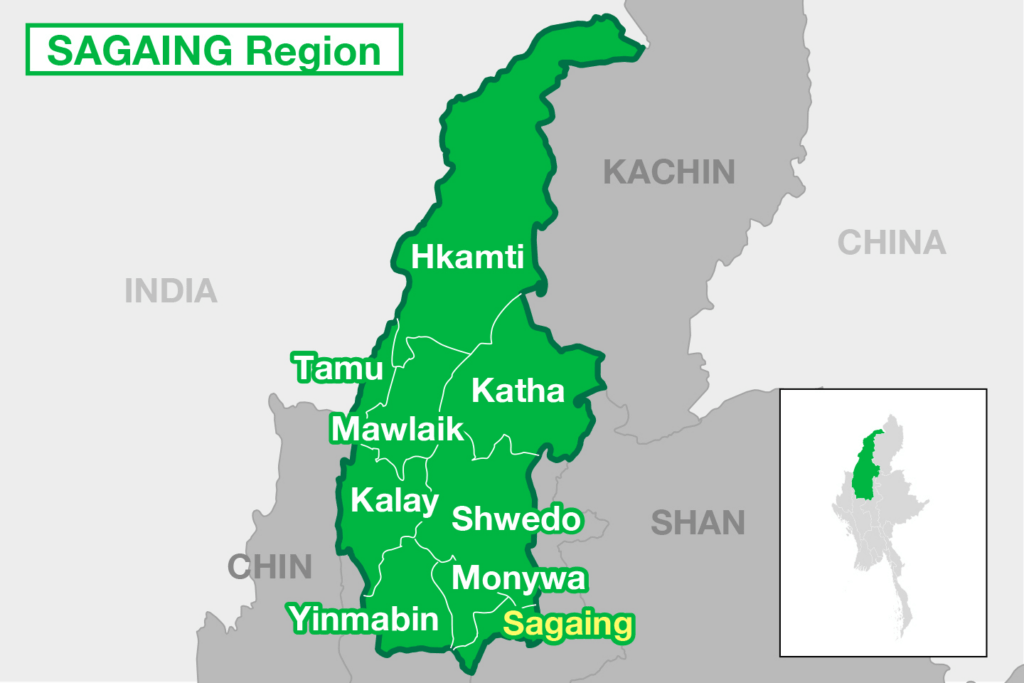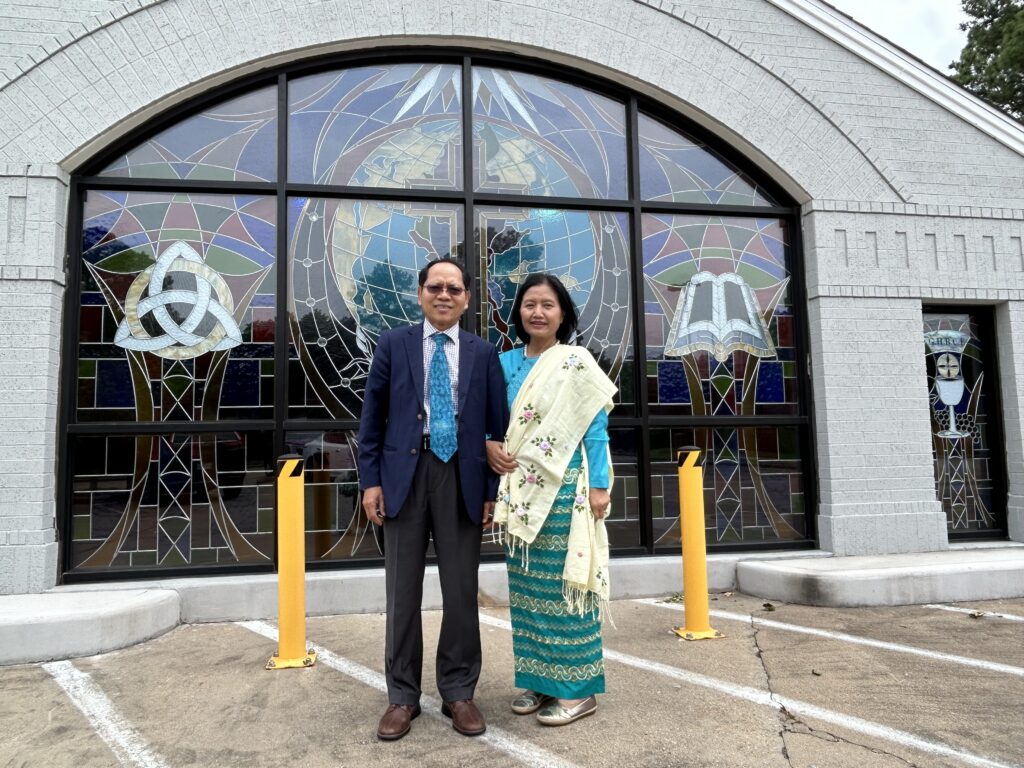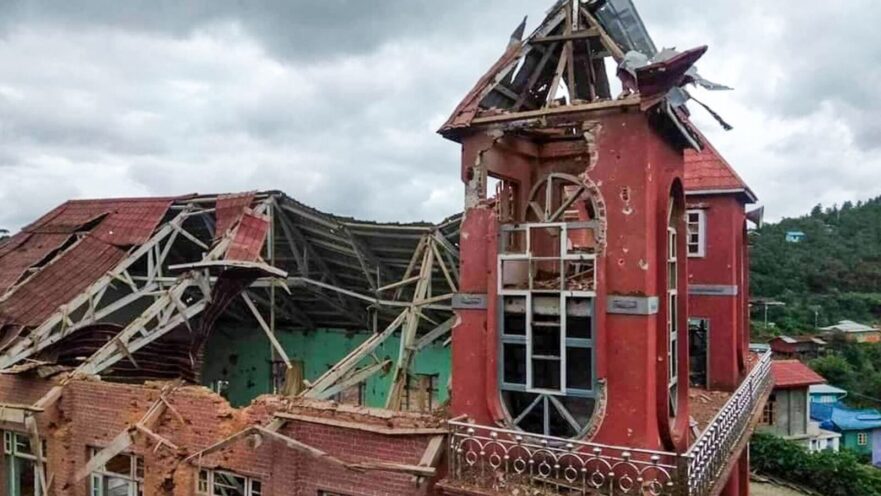By Rev. Dr. Thong Kho Lun
Dec. 2, 2024
I grew up in Tamu town, an Indo-Burma border town in Sagaing Region or province located in the Northwest part of Burma (Myanmar.) My parents practiced spirit worship but they converted to Christianity when I was a young child. Because we lived in a predominately Buddhist area, I attended a Buddhist school. When I was 18, I responded to a missionary’s altar call and became a Christian. I had a burden to share with my Buddhist friends the gospel of Jesus Christ so I decided to attend Bible college. I then continued my theological studies in India, the Philippines, and the United States of America.
I was personally impacted by violence due to religious beliefs that was inflicted on the community in which I was raised in 1993. I was doing studies at a seminary in the Philippines when back home my pastor and three village leaders were killed and our church elders were tortured. They were accused of insulting some group of citizens. The conflict in Myanmar is not solely about religious persecution, but is a battle between democracy and dictatorship, with the public supporting the democratic movement. Myanmar has struggled with military rule, civil war, poor governance, and poverty during its decades of independence. Min Aung Hlaing, chief of the military government, took control of the country in a coup in 2021squashing hopes for democratic reforms in the Southeast Asian nation.
The conflict in Myanmar is not solely about religious persecution, but is a battle between democracy and dictatorship, with the public supporting the democratic movement. Myanmar has struggled with military rule, civil war, poor governance, and poverty during its decades of independence. Min Aung Hlaing, chief of the military government, took control of the country in a coup in 2021squashing hopes for democratic reforms in the Southeast Asian nation.
However, on the ground, the reality is that there is religious persecution. When soldiers went to our villages and Christian areas, they destroyed churches, arrested pastors, threw Bibles outside, and even spent the night in the church. Religious persecution in Myanmar is not just about ideology, but also about destroying religious symbols and institutions to enforce total allegiance to the government.
Christians live in fear in Myanmar. For example, it could be midnight and dogs are barking, there is always fear that the police or military soldiers are coming. When I returned to Myanmar after schooling and began pastoring a church, I was always shadowed by the Ministry of Intelligence. Whenever I preached, they would listen and then report to their office what I was saying. On occasion, they would request to see my sermon notes in advance. All churches are open to the public in Myanmar, but they must be registered. At times, the government required us to submit our notes so they could check the content.
During that time, I was also serving as General Secretary of a Baptist association. One night while I was at their office training some pastors, the police came and wanted to see my notes. They did not find anything that was against the government so they left. However, the next morning I was called to the Administrative Office of the Court and they wanted to know why I was training pastors without their permission. I had submitted my application for permission the prior month, but I heard nothing so I went forward with the training. They checked their records and then I was allowed to leave.
I came to the United States in 1996 to study chaplaincy ministry so I could return to my country and start one in a hospital. After I finished my studies I returned to Myanmar for two years to serve as a minister and complete my term as General Secretary of the Baptist Association. While here my wife had health issues which precluded her from going back to Myanmar with me for those two years.

Rev. Lun visited Sittwe City, the capital of Arakan State, Myanmar in 2016 to provide emotional and spiritual support to the minority Mro ethnic people in Arakan state.
I have since returned to Myanmar multiple times for ministry and mission trips, but after the coup in 2020, the situation for Christians has deteriorated significantly. There is no justice or rule of law. I still have family in Burma and my sisters are living as refugees in India. Refugees from Myanmar face unequal treatment in India, with some states providing aid while others reject them.
The Myanmar Baptist Convention is the largest Baptist organization in Asia with 1.5 million members and more than 5,000 churches. In the western part of Myanmar, we have lost more than 200 local churches. As for the rest of the country, at least 500 local churches are not functioning due to fear and violence forcing Christians in villages and towns to flee. In the cities, some churches are functioning but with limitations. Christians and other religious minorities in Myanmar are suffering and in danger. They cannot speak out due to fear of arrest, torture, or death. We must not tire of amplifying their voice, telling their stories, and advocating for them to live out their faith in their country without fear. It is only those outside the country who can boldly speak about the reality of the situation in Myanmar.
Pray that God will change the hearts of military leaders in Myanmar. Change of heart is important so they will have the courage to take responsibility for their actions. Without this, the problems will continue. Pray for the Christians in Myanmar to have endurance and to find a secure, safe place to live. Pray for the young pro-democracy fighters who are fighting for justice and peace.

Rev. Dr. Thong Kho Lun founding Pastor and his wife, Rev. Dr. Mang Tiak, Associate Pastor at Greater Houston Burmese Christian Fellowship (a mission church of Tallowood Baptist Church.)
Rev. Dr. Thong Kho Lun serves as the founding Pastor and his wife, Rev. Dr. Mang Tiak, serves as Associate Pastor at Greater Houston Burmese Christian Fellowship (a mission church of Tallowood Baptist Church.) Rev. Lun is the president of the Burmese Christian Association of North America and continues to be involved in mission work in Myanmar and Thailand.
In the Spring of 2022, 21Wilberforce played a leading role in mobilizing thousands of Burmese diaspora and other concerned citizens through its collaborative advocacy technology. The Burma Advocacy Group is comprised of leaders from associations, churches, and community groups who were acting with one voice to advocate for the passage of the Burma Bill in the U.S. Congress which passed in late April 2022. In partnership with The Burma Advocacy Group, 21Wilberforce mobilized over 5000 people to send 11,060 messages to their Members of Congress in support of legislation that supports the people of Burma’s freedoms and basic needs during the ongoing conflict in their country. The Burma Advocacy Group noted this about the partnership: “We would like to give a special thanks to our friends at 21 Wilberforce for partnering with us as we defend freedom and justice in Burma.”
The team at 21Wilberforce continues to advocate for those suffering in Myanmar. Discussions and ongoing advocacy work with leaders from Myanmar and the Burmese diaspora have revealed opportunities for “upstream solutions” to support the millions of Christians who continue to live with the many challenges resulting from the 2021 military coup. For example, 21Wilberforce partners with a seminary on the Thai-Burma (also known as Myanmar) border that is working to help address a crisis that displaced people fleeing a new military offensive by the Karen National Union.
Most recently, 21Wilberforce President Wissam al-Saliby attended “A Day of Action for Burma” October 30th at the UN. Organized by the Burma Advocacy Group, working under the American Baptist Churches USA Burma Refugee Commission, the event called for global attention to Myanmar’s ongoing human rights crisis. Leading voices advocated for democracy and human rights in Burma, including special guest Tom Andrews, UN Special Rapporteur on the Situation of Human Rights in Burma, as well as key representatives and advocates from Burma’s National Unity Government (NUG).Co-sponsored by numerous advocacy groups and human rights organizations, the event sent a clear message: the world cannot turn a blind eye to Myanmar’s crisis. You can learn more about the current situation in Burma (Myanmar) and the religious freedoms under attack here and here.

